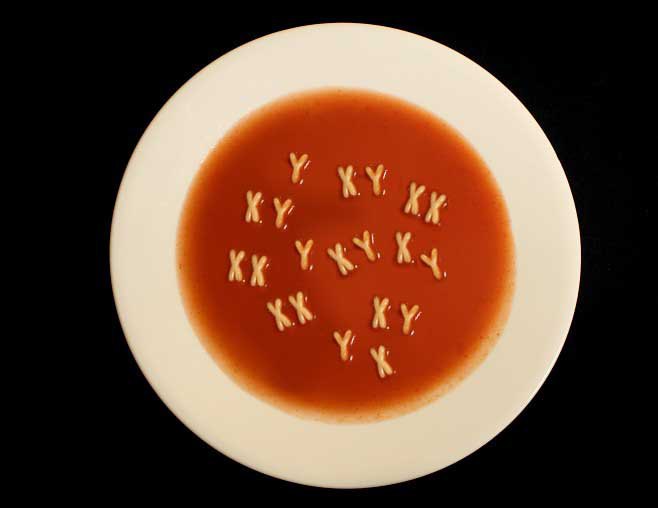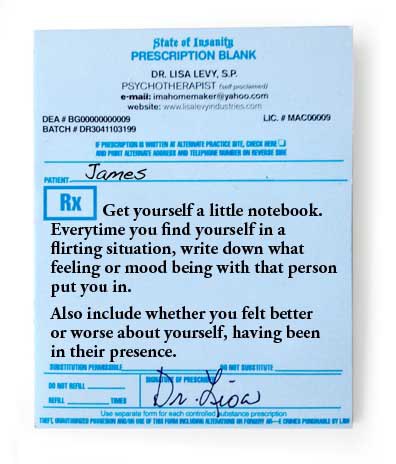
I was really pleased to read James R.’s recent article, Closeted in Bushwick. James writes: “I love you, Bushwick, but I have some complaints. This neighborhood, so creative, friendly, so densely populated and diverse, desperately lacks a thriving queer scene.”
As a relatively recent hetero transplant from Chelsea, I was surprised to read this since Chelsea seemed much more sexually segregated. I really enjoy how much the LGBTQ community feels integrated in a particularly healthy way in Bushwick. But James’ article highlighted that there simply aren’t enough places to go for queers to socialize just with each other.
I hadn’t thought about this until now and I felt James was doing us a service by bringing the topic to the table. Of course, just as any article involving sexual politics, the comments had the usual back and forth sniping. FishBait BK wrote, “Clearly [he] didn’t attend ‘Trey LaTrash’s Dizzyland’ this past weekend at Spectrum or ‘Spank’ (which happened last month).” And a comment from MushRoom indicated he was happy with the way things are, “Queer people want to be accepted in a REGULAR bar and not have to create their own homosexual versions of bars that already exist.”
The comments showed that some queer people think all is good in Bushwick, while others hint at a seemingly repressed anger in the queer community towards breeders. I wanted to get the issues out in the open, so I contacted James directly and he generously offered to answer some questions for me, which I hope will help illuminate the Bushwick LGBTQ point of view for the rest of us.
Dr. L: Bushwick is supposedly an example of as nonjudgmental a community as any you can find. Do you think this is truly the case or are we just faking it?
JR: I would definitely have to agree that New York City, in general, is a place where one can be themselves entirely and find many others that will share their life experience without judgment in regards to sexual orientation, gender expression, race, nationality, religion, or other identity traits. I think many people who come here or live here are still a bit hetero-biased, meaning they live their lives with and around straight people and while they vocally support gay rights, but they aren’t going to make any extra effort to befriend LGBTQ people in the area. Many of my friends and I discuss the simple DIFFERENCE LGBTQ people feel when they speak to those in their own community versus speaking to heterosexuals. Many cis heterosexuals are incredibly well-intentioned, but are oblivious to their own internally embedded beliefs that sometimes surface in the form of hetero-bias without quite realizing it. One man, someone I’ve known for a while and who I’m comfortable with, had no idea that saying, “Well, I think gay people are totally fine. I have no problem with them, but I do think they’re unnecessary… I mean, they don’t reproduce.” But I think a constructive and realistic perspective on the hetero-bias of the people living in and moving into Bushwick is beneficial to the growth of the region MUCH MORE than living in an idealistic delusion in which LGBTQ people, especially the T and Q on that spectrum, face bias and estrangement.
Dr. L: What role does online dating and hooking up play in the Bushwick LGBTQ community versus the straight Bushwick community?
JR: From my article from last week, someone wrote a great comment on how social media and applications specifically designed for gay men to date one another has completely changed the social landscape for queers in areas like Bushwick. It changes the demand for specifically designated gay bars, because one only needs to turn on his phone in order to chat with other openly gay men in his neighborhood. I think, also, events and parties that are queer in Bushwick are more focused on artistic expression and integrity, because with applications and dating sites hooking up has become a side note to nightlife rather than the main attraction. I still need to spend more time analyzing how these applications and sites affect the gay community in Bushwick versus the straight community, but I would definitely say that they have made a major impact.
Dr. L: If there was one thing you wish straight people could understand about not being straight, what would that be?
JR: Gender, gender, gender. It is constantly and continually frustrating how often heterosexual people (and, in fact, many gay people) correlate gender and sex. The gender of which you identify, your gender expression, and your biological sex are not innately interlinked. I feel that throughout my life I, and many of the LGBTQ people I’ve known, have experienced less direct homophobia (that is, hatred or fear based simply on orientation) and much more discrimination based on our gender expression. Constantly, the humanity and value of effeminate gay men is undermined and outright denied. In the most recent election, gay political prodigy Nate Wizard was called “too effeminate” to be able to accurately predict the results. This correlation between trivial “feminine” traits – a high voice, a particular way of walking, etc. – and stupidity is, in my eyes, outright sexism.
Dr. L: Do LGBTQ’s want to be more integrated with straights? And if so, what actions can straight people take to make our community more straight/LGBTQ integrated? (As an aside, I came across this online article, “Get Out of My Gay Bar”, the other night, that says no, they don’t).
JR: Well, each individual wants something completely different. Writers and editors of the Advocate are most likely proponents of (at least legal) integration, while activists such as the queer group Bash Back! are steadfastly anti-assimilationist. It’s undeniable that most people want to be respected in their community. While I think it would be pretty difficult NOT to assimilate to some extent, some of the writings of activists such as those in the Bash Back! collective and the academic writings of queer theorists are incredibly interesting and discuss the option of deconstructing what it means to be part of a heteronormative society, what limits that society places upon the individual, and whether or not queers should be trying to imitate and integrate into such an oppressive society. I think a lot of queers now are discussing how the fundamental social norms (those very same things we talked about above that straights take for granted) are actually constructs built upon the exclusion and oppression of queers. Some of us want to change those social constructs altogether, starting with the polarity of sexuality and gender.
As for the second part of the question, all I can say is that if a heterosexual person in Bushwick is already open-minded enough to think to themselves, “How can I be more accepting of queer people?” then I would hope they would take that extra step to really think about how they think and feel about what it means to be gay and perhaps even read some feminist and queer literature. The expansion of their perspective on the matter just by reading contemporary social theory will inevitably change the way they interact with everyone around them, including LGBTQ people.
And finally, James has a question for Dr. Lisa
Dear Dr. Lisa—
As a queer person living in Brooklyn, Many times I find people very similar to me physically and personality-wise, are the ones attracted to me, but I find myself more interested in people who physically look much different and have very different personality traits from myself. In in my eyes, they compliment me. Plus, I often find myself attracted to straight men. Do you think this is because I’m afraid of getting involved, some embedded relationship issues, or is it normal to want to attract an “opposite”?
Dear James—
Mainly this all sounds a bit self-conscious to me. I wonder if part of the reason you’re having trouble identifying who you’re attracted to is because you are thinking about it too much and it’s getting in the way of your using your instincts. It seems as if you’re evaluating the potential men as either “the same” or “different” from you. Maybe try not to try so hard to think about why you are/are not interested in them. Simply see if you have fun with someone enough to want to spend more time with them, regardless of the details. Being attracted to straight men, in your case, likely means that you are attracted to unavailable people, which generally would say that you may have a fear of getting close to someone who is a real possibility for you.




